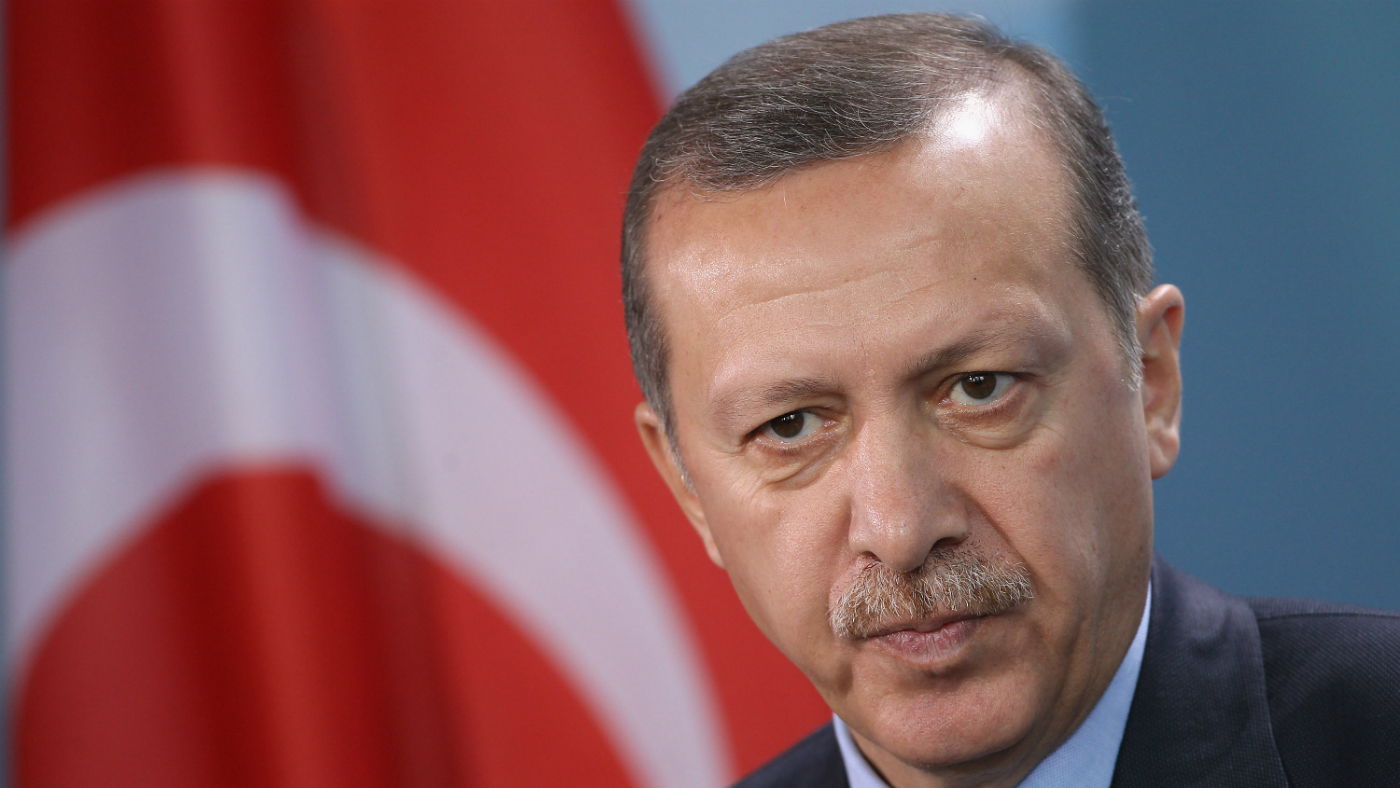Controversial new voting laws trigger brawl in Turkish parliament
Opposition say newly passed legislation may lead to election fraud and intimidation

A free daily email with the biggest news stories of the day – and the best features from TheWeek.com
You are now subscribed
Your newsletter sign-up was successful
A fist-fight erupted in Turkey’s parliament yesterday after lawmakers approved changes to the country’s electoral rules that critics say are aimed at helping President Recep Tayyip Erdogan consolidate power.
The legislation “formally allows for the creation of electoral alliances, paving the way for a tie-up between President Erdogan’s ruling AK Party (AKP) and their nationalist allies”, says Reuters. It was widely expected to pass, given the combined support of the AKP and the Nationalist Movement Party (MHP).
Immediately after the parliament’s deputy speaker, Ayse Nur Bahcekapili, announced the voting result, a brawl erupted between nationalist lawmakers and those from the main opposition. “Several parliamentarians traded punches and shoved and chased each other in the chamber,” Reuters reports.
The Week
Escape your echo chamber. Get the facts behind the news, plus analysis from multiple perspectives.

Sign up for The Week's Free Newsletters
From our morning news briefing to a weekly Good News Newsletter, get the best of The Week delivered directly to your inbox.
From our morning news briefing to a weekly Good News Newsletter, get the best of The Week delivered directly to your inbox.
Turkey is due to hold elections next year, and Erdogan “will need to secure 51% of the vote to remain at the helm”, says The Washington Post.
“The president knows that a small shift in votes could mean a defeat in a contest he cannot lose,” Wolfango Piccoli, co-founder of London-based advisory firm Teneo Intelligence, told Bloomberg. “Further initiatives to maximise the chances of a positive outcome on ballot day are likely.”
The changes mean Erdogan’s ruling party can now enter a formal alliance with the nationalist party, permitting the smaller party to gain parliamentary seats even if it fails to pass the 10% electoral threshold. In turn, Erdogan would secure the nationalists’ continued support.
In addition, members of the country’s security forces will be allowed to enter polling stations on election day when invited by a voter. The government says this measure will stamp out intimidation by the outlawed Kurdistan Workers Party (PKK), but opposition groups say the presence of security forces could be used to rig votes.
A free daily email with the biggest news stories of the day – and the best features from TheWeek.com
Put together, the measures amount to a “serious threat” to fair and free elections, the main opposition Republican People’s Party (CHP) said in a statement following meetings with representatives of eight other parties.
“The risk of holding elections under the shadow of guns could put voters under pressure,” CHP lawmaker Ugur Bayraktutan told a parliamentary committee.
-
 The week’s best photos
The week’s best photosIn Pictures An explosive meal, a carnival of joy, and more
-
 The ‘ravenous’ demand for Cornish minerals
The ‘ravenous’ demand for Cornish mineralsUnder the Radar Growing need for critical minerals to power tech has intensified ‘appetite’ for lithium, which could be a ‘huge boon’ for local economy
-
 Why are election experts taking Trump’s midterm threats seriously?
Why are election experts taking Trump’s midterm threats seriously?IN THE SPOTLIGHT As the president muses about polling place deployments and a centralized electoral system aimed at one-party control, lawmakers are taking this administration at its word
-
 Epstein files topple law CEO, roil UK government
Epstein files topple law CEO, roil UK governmentSpeed Read Peter Mandelson, Britain’s former ambassador to the US, is caught up in the scandal
-
 Iran and US prepare to meet after skirmishes
Iran and US prepare to meet after skirmishesSpeed Read The incident comes amid heightened tensions in the Middle East
-
 Israel retrieves final hostage’s body from Gaza
Israel retrieves final hostage’s body from GazaSpeed Read The 24-year-old police officer was killed during the initial Hamas attack
-
 China’s Xi targets top general in growing purge
China’s Xi targets top general in growing purgeSpeed Read Zhang Youxia is being investigated over ‘grave violations’ of the law
-
 Panama and Canada are negotiating over a crucial copper mine
Panama and Canada are negotiating over a crucial copper mineIn the Spotlight Panama is set to make a final decision on the mine this summer
-
 Why Greenland’s natural resources are nearly impossible to mine
Why Greenland’s natural resources are nearly impossible to mineThe Explainer The country’s natural landscape makes the task extremely difficult
-
 Iran cuts internet as protests escalate
Iran cuts internet as protests escalateSpeed Reada Government buildings across the country have been set on fire
-
 US nabs ‘shadow’ tanker claimed by Russia
US nabs ‘shadow’ tanker claimed by RussiaSpeed Read The ship was one of two vessels seized by the US military